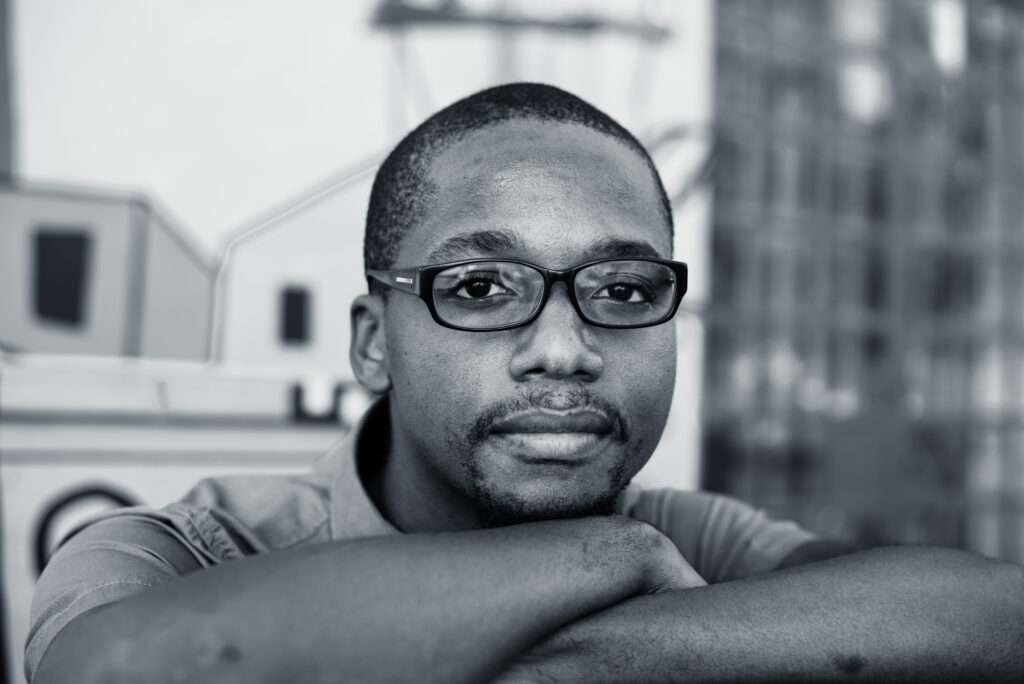Writer and designer Mélio Tinga was in Mauritius on a mobility grant from the IOC – Indian Ocean Commission. The aim: to get to know and interact with the literary market in that Indian Ocean country and to try to establish bridges and a “new” route for reading in the world of Mozambican literature. In fact, that country was a point of reference in the slave trade from Mozambique to the world, and some even settled there. The writer found these marks and other observations that are the motto for this interview, which has everything to do with a new and different approach to the book business and the sustainability that is so much talked about for the book market. “We are completely insolated in the region, our books, in Portuguese, in the southern region of the continent we have no one to sell them to,” says Mélio Tinga, who now realises that translating books is the way out of the 200-copy depression that most Mozambican authors and publishers have been condemned to.
Mélio Tinga has stood out among the new generation of authors in Mozambique. His debut novel, “Marizza”, won the Imprensa Nacional/Eugénio Lisboa Prize (2020). In 2023, he was the winning writer of the Maputo Lisboa Literary Residency.
Is this trip to Mauritius a bit about exploring the unknown or opening up a new route?
I think it’s in the sense of exploring the unknown, opening up a new route to discover where it might lead us. Like someone who just follows a sound and knows that it’s a bird’s song, regardless of where it comes from.
It’s a new route, thinking that we have a “natural” tendency towards the Atlantic. You yourself went to Portugal recently (May 2023) as a resident. The Indian Ocean is, after all, a territory with several stories in common?
This place is completely different from the Portugal I knew. The Indian Ocean, because of this and the other things I know, is a place with a thousand and one stories in common. I discovered, for example, that Mauritius has a strong historical relationship with Mozambique related to the slavery process. Mauritius was a kind of stopping-off point, and a good number of these people came from Mozambique, which is why, for example, there is an area here with the name Macondé, which includes a rock, a sea. It is believed that the area was named after runaway slaves from the Maconde tribe of Mozambique. Today I went to visit a museum that recently opened, the Intercontinental Slave Museum, where I had the opportunity to see different images of real busts with information about the tribe, parents of origin and age – many of these were from Mozambique. There is a very solid bond between us, and it’s impossible to escape these facts. What we have to do is consolidate and solidify these historical and cultural connections.
Culturally, it may be easier to get to France, India, China, Australia, among other countries, from Mauritius. When you talk about a multicultural and multiethnic country, it really is, and it’s all the more dense because it’s all on an island some two thousand kilometres long, so there’s no diluting it. These are just a few examples of the fact that this is a case in the Indian Ocean of several intersecting stories.
You talk about understanding how the literary market works in Mauritius. Market and literature are two expressions that are still complex in Mozambique. Perhaps you’ve been asked this question: what is the Mozambican literary market like?
It’s difficult. Anyone who works with books knows. It’s hard! A lot of energy is expended, there isn’t really a market that flows, nor is there such a market, it’s constantly choking, despite the talented and courageous people we have. Bookshops are closing down more and more, there is no serious incentive to publish, produce and distribute books. A small publisher, no matter how strong-willed, would never be able to produce and distribute a book across the country. The few printers that print books in the country’s capital are either very low quality or very expensive. In other words, the publisher has to choose between selling a cheap book that will be destroyed at the door of the bookshop, or selling a very expensive, good book that could take years to be taken off the shelf by a reader. If we want to think about the market, we have to look at all the dimensions: authors, publishers, reviewers, printers, distributors, critics, the media, and one element that we often forget about, the state. Hypothetically, if the state buys just two copies for each province of each book published by a small publisher, it would be doing something concrete. And if it bought ten copies for each province, it would be saving many dreams.
We can see that the Mozambican literary “market” also works a little with your influence: writer, (book) designer, entrepreneur in the literary field, promoter of literary events, you name it. It seems there’s a lot to be done in Mozambique. Where do we start and where are we going?
I think the ideal is to start where we are, with the things we’re doing. If we want to look for another way to start, we’ll end up a little frustrated. At the moment I think the important thing is to be constant, permanent, to keep on ploughing, with whatever tools and weapons we have. It’s not easy to work with books in Mozambique, we all realise that. But it’s not easy here in Mauritius either. But I have the slight impression that they have more support from non-governmental organisations, at least that seems to be evident. I’ve had several meetings with some of the main players in the book market, and some were surprised when I talked about 200 and 500 copies, because we have a big country, dozens of times bigger than this one (Mauritius), we have a lot of people, even if we exclude the population that can’t read, it’s still a huge universe. Here, 500, 1000 to 5000 copies is what they usually do. Who makes 5000 copies of fiction in Mozambique? There, a very important factor may come into play: language. Mauritius is an island physically, but Mozambique is an island linguistically. We’re completely isolated in the region, our books, in Portuguese, in the southern part of the continent we have no one to sell them to. We have Angola, but what permanent relations have we created with Angola in the book sector? For the rest, all countries speak English. In the case of Mauritius, although the market is small, it has strong relations with the countries of the Indian Ocean, such as the Seychelles, Madagascar, Reunion Island and the Comoros, which greatly expands the radius. What’s more, I have the impression that the Indian Ocean Commission (IOC), an intergovernmental organisation that brings together the countries I’ve mentioned, has been doing something; there are many books here published with the support of this organisation, mainly for children. I mention this organisation because I think that one like the CPLP in our case has books as a strong weapon for promoting language, connection and cultural exchange between peoples. In Mozambique I don’t know of any permanent initiative in the book sector that has benefited from support of this nature.
This interview has to be about Mauritius. Let’s go back. I know you always keep a notebook. What was written on the list of things to do, places, people and institutions to see?
This mobility programme required candidates, including individuals and institutions, to submit a project about what interested them. Right now, more than just writing and publishing, I think it’s important that we start looking at what’s happening on the continent and around the world, what we can learn from others and what we can give. What we can take in and what we can take out. We need to connect with others, despite the language barrier. So this project already expressed that interest, that desire. My notebook worked before finalising this project, but also right after the selection, in identifying institutions, people and types of common interests. This included writers, publishers, printers, cultural journalists, literature teachers and festival directors.
And how’s that list looking now? Agenda fulfilled or are new and different destinations and people being unleashed?
I feel that what was planned is done. As the politicians say: I leave with a sense of mission accomplished. The important thing at the moment is to build paths so that the results of these contacts can emerge. Because as I said, historically we have connections, but now we have to overcome the language barrier. Obviously in this type of stay, as the final days approach, more interesting people come along, we receive more suggestions, but we have limited time, we can’t do everything.
How can you actually turn your exchange experience into something tangible?
Objectively, I think we have to start with translation. Without that, it would be the same song as frogs in the sea. We have to pave the way by translating books by new voices from Mozambique, but we also need to get to know some of the most interesting ones from Mauritius. They don’t know anything about what we have, or about the most renowned writers, and neither do we. They don’t know anything about Portuguese-language literature. In one conversation, when I mentioned that Mozambican writer Mia Couto had won one of the editions of the Neustadt International Prize for Literature, they were amazed. On this side there are people who are really interested, we have, for example, been thinking about the possibilities of co-publishing between the two countries, and I’m hopeful that we’ll have results.
Are these mobility grants an interesting way of accessing other territories, in the sense of new landscapes as a writer and possible opportunities?
I find this “new landscapes” extremely interesting. And I can rightly get lost answering because of that expression. But yes, these mobility grants are valuable because they take us out of our protective box and connect us with other realities, which more than anything else, as a writer is a great asset, but also interesting because they help to build other pathsa.
And finally, language. After all, Mélio is a writer and does he want to be read and understood in this other territory?
In literature, I think we have to translate ourselves in order to understand each other, but also to expand our network of readers. As a writer, of all the meetings I’ve had, despite the interest in my work, there was no way of reading it, why? Language. Most Mauritian literature is in French, some in English and some in Mauritian Creole. French is spoken in around 21 African countries, so this may be something we need to think about in terms of the paths we want to take.
From the reflections and meetings you’ve had, what are the big questions that need to be answered and resolved?
Why is it that we have such a large country and produce so little (produce in the quantitative sense)? What potential can there really be in our local languages for short stories? What initiatives can we take to help publicise our literature? (we think we publicise ourselves enough, the reality is different).



